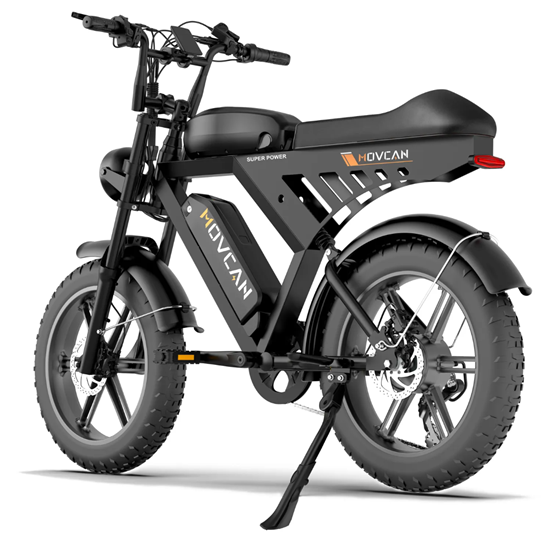
Is an Electric Bike Considered a Motorized Vehicle?
The rise of electric bikes has revolutionized personal transportation, blending the efficiency of bicycles with the convenience of motorized propulsion. However, many people wonder: is an electric bike considered a motorized vehicle? The answer depends on several factors, including local laws, the bike’s specifications, and its intended use. In this article, we will explore the classification of electric bikes, the legal distinctions, and what you need to know before purchasing or riding one.
What Defines a Motorized Vehicle?
Before diving into electric bikes, let’s clarify what constitutes a motorized vehicle. Typically, motorized vehicles are powered by an engine or motor and are subject to specific regulations, such as licensing, registration, and insurance requirements. Examples include cars, motorcycles, and mopeds. Whether an electric bike fits into this category depends on its characteristics and how it is used.
Understanding Electric Bikes
An electric bike, or e-bike, is a bicycle equipped with an electric motor to assist the rider’s pedaling. These bikes come in various forms, each designed to cater to different needs, from commuting to off-road adventures. The three main classifications of electric bikes are:
- Class 1: Pedal-assist only, with a maximum speed of 20 mph. The motor provides assistance only when pedaling.
- Class 2: Throttle-operated, with a maximum speed of 20 mph. These e-bikes can be powered without pedaling.
- Class 3: Pedal-assist, with a maximum speed of 28 mph. Often referred to as speed pedelecs, these bikes are designed for faster commuting.
Are Electric Bikes Motorized Vehicles?
The classification of electric bikes as motorized vehicles varies by jurisdiction. In many regions, e-bikes are treated differently from traditional motorized vehicles due to their limited speed and power. Here’s a closer look at how electric bikes are classified:
United States: Federal law defines electric bikes as bicycles, provided they have a motor of 750 watts (1 horsepower) or less and a maximum speed of 20 mph when powered solely by the motor. This distinction exempts them from being classified as motorized vehicles.
European Union: E-bikes with pedal-assist and a motor output of 250 watts or less, limited to 25 km/h (15.5 mph), are considered bicycles. Faster or more powerful e-bikes may require registration and insurance.
Other Regions: Laws differ globally, with some countries requiring licenses for all e-bikes and others applying bicycle regulations to specific classes.
For specific regulations in your area, it’s essential to consult local laws.
Why the Distinction Matters
The classification of electric bikes as motorized vehicles has practical implications:
- Licensing and Registration: In most regions, Class 1 and Class 2 e-bikes are exempt from licensing and registration, making them accessible to a broader audience.
- Road Access: Electric bikes often have access to bike lanes and trails, unlike motorcycles or mopeds.
- Insurance Requirements: Many e-bikes do not require insurance, reducing the cost of ownership.
The Case for Off-Road and All-Terrain Electric Bikes
While commuter e-bikes dominate urban landscapes, off-road and all-terrain electric bikes offer a thrilling alternative for adventurers. These bikes are designed to handle rugged terrain, steep inclines, and challenging trails.
Discover Movcan’s collection of off-road and all-terrain electric bikes for a seamless blend of power, durability, and performance. These bikes are equipped with robust motors, advanced suspension systems, and long-lasting batteries to tackle any terrain with ease.
A Closer Look at the Movcan V30Max
The Movcan V30Max Off-Road Electric Motorbike is an excellent example of how electric bikes can redefine adventure. With its powerful motor, sturdy frame, and advanced features, the V30Max is perfect for off-road enthusiasts. Its ability to handle diverse terrains makes it a versatile option for those seeking excitement and utility.
 Movcan V30 MAX Off-Road Electric Motorcycle
Movcan V30 MAX Off-Road Electric MotorcycleWhat to Consider When Choosing an Electric Bike
When selecting an e-bike, consider the following factors:
- Purpose: Are you commuting, exploring trails, or seeking a versatile bike for various uses?
- Motor Power: Higher wattage motors provide more power but may impact classification.
- Battery Life: Look for e-bikes with long battery life to ensure extended rides.
- Legal Requirements: Ensure the bike complies with local laws to avoid fines or restrictions.
For a wide range of options, visit Movcan’s electric bike collection.
The Future of Electric Bikes
Electric bikes are poised to play a significant role in sustainable transportation. Their ability to reduce carbon emissions, ease urban congestion, and provide a fun, efficient mode of travel makes them increasingly popular worldwide.
Conclusion
So, is an electric bike considered a motorized vehicle? The answer depends on its specifications and local laws. In many cases, e-bikes are classified as bicycles, making them a convenient and eco-friendly choice for riders. Whether you’re a commuter, adventurer, or casual rider, electric bikes offer something for everyone.
Explore Movcan’s cutting-edge electric bikes and find the perfect ride to match your lifestyle. From off-road beasts like the Movcan V30Max to versatile urban commuters, there’s an e-bike for every need. Embrace the future of transportation with Movcan.
